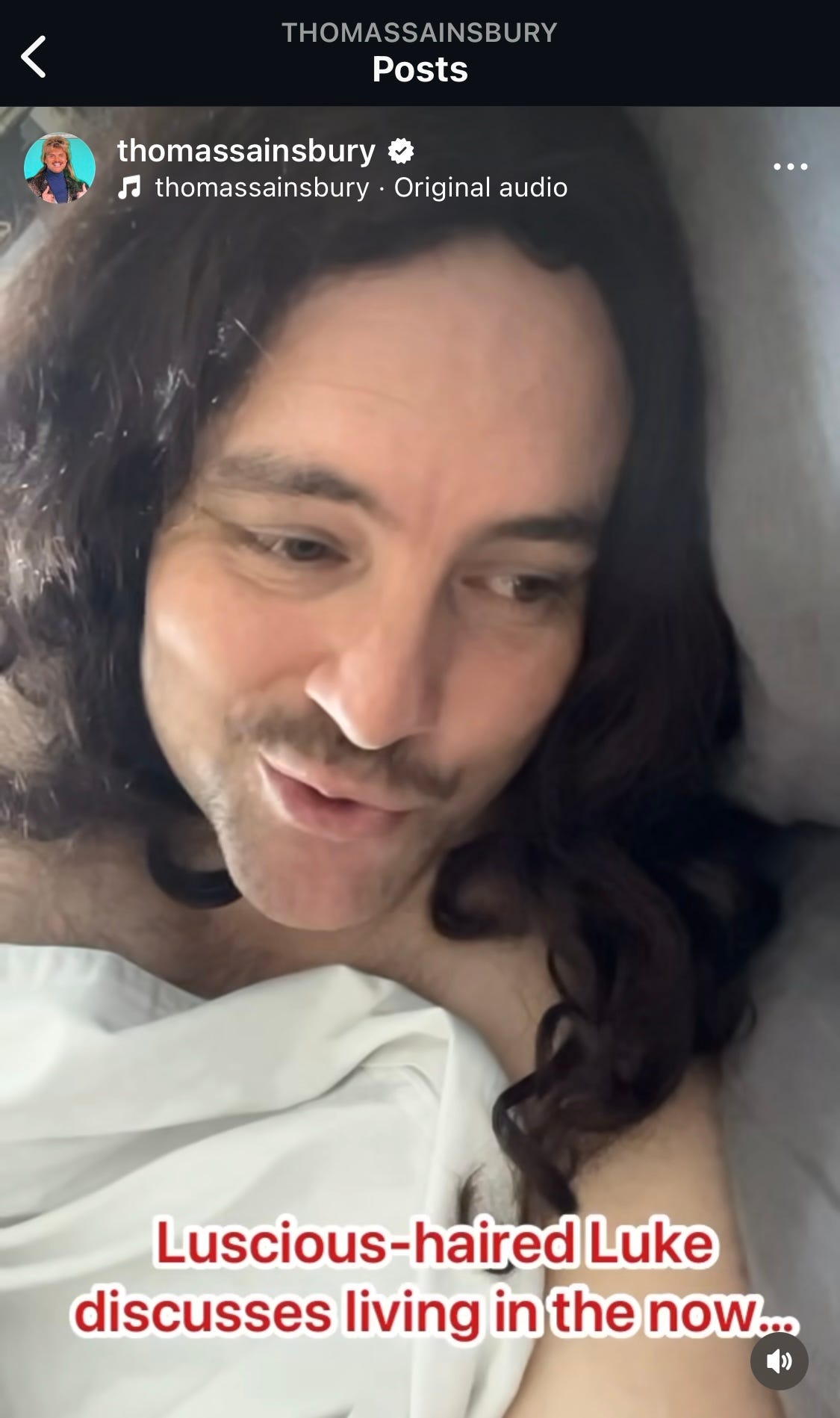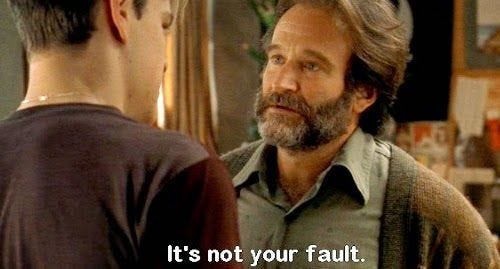#0 - Welcome to Untethered.
A Hopeful Exploration of Care, Community and The Living Human Web in Late-stage Capitalism
Hi again 👋🏼
It really is lovely to have you here.
This Substack is part of a "project” (read: unhinged hobby horse) of mine that’s been in development for some years now. Hopefully, it floats your boat too!

I’ll start with a confession.
I don’t know whether I can pull this off in a newsletter. I’ll explain why in a bit, but before I do, here’s a brief intro to what this is all about:
I’m fascinated by ideas around connection and community and loneliness and crisis and care. I’ve spent years listening and reading and researching and trying to understand this stuff.1 Part of my job is sitting with people’s lives and stories - and as I do, I can’t help but notice particular patterns and common threads across vastly different experiences.
One of the themes that continues to emerge in these conversations is a sense of confusion when articulating deep concerns about life satisfaction. On the one hand, life is good, experiences are abundant, and options are plentiful. On the other, something is missing, and any sense of enjoyment can feel tenuous - like it might slip away at any moment.2 We find forming relationships of depth and meaning difficult, and there is an underlying sense of fragility about the future.
It feels as though people are trying to reconcile two disparate experiences of the world. While they have language for why life should be enjoyable, they struggle to name or explain their nagging discontent. When they do, it often comes in the form of questions: What’s wrong with me? Where do I find help when I am struggling? Why is it so hard to be vulnerable? How do I do so without driving people away? What do I do when I discover my problems are overwhelming? How do I develop meaningful community when no one stays in one place?
Put another way - how might we reconcile the liberating sensation of not being tied down with the deep fear that we are ultimately alone?3
As I’ve spent the last decade exploring this stuff, I’m growing increasingly concerned that we’re collectively digging ourselves a deeper hole when it comes to caring for ourselves and each other - then trying to fix it with the same ideas that are causing it in the first place. A culture of autonomous individualism is hurting us. It not only offers a context that is brutally unforgiving of weakness but also shames individuals for not thriving within it.
BUT - and this is an important but4 - there are also very good reasons we’re not overthrowing it. We’re not idiots. It’s part of an exchange that’s actually serving many of us quite well, in the short term at least. And much like the lottery, it’s promising payoffs of extraordinary proportions. When contemplating how we might live differently, we’re just not convinced the payoff is worth the risk.
This is where we run into our first problem: understanding why autonomous individualism is such a compelling but dangerous idea means digging into how it was sold to us in the first place. Only then can we evaluate its promises, consider why we bought it in the first place, and imagine other ways of being. And getting to the bottom of it might take longer than most of us are used to paying attention for.
#theveryworstinfluencer
The key to being a good #influencer is to tackle a difficult and complex problem and offer a simple but difficult solution. The role of the influencer or guru is to provide a constant flow of easy-to-understand but slightly elusive advice (preferably wrapped in “aha” laden truth bombs) and add lashings of ultra-enthusiastic motivation to give you the fuel you need to make the change. Ideally, it will leave you believing that the solution is simultaneously so ingenious and so obvious that you’ll be kicking yourself for not doing it earlier.5

But the problem with what I’m suggesting is that I don’t think you can fix it - not by yourself, anyway. I don’t believe there’s a risk-free quick fix you can apply because I don’t believe the problem lies solely with the individual. A little more willpower or risk-taking or “this one brain hack” doesn’t solve it. It’s ours, collectively.
Although the issues are easy enough to grasp when broken down well, they take some time to come to terms with. The stories we tell about our lives are ingrained in our culture in such a way that they’re almost invisible to us - meaning we can struggle to see some of the issues as bugs rather than features.
For example, this is what often happens when trying to explain a particular element of this project:
When describing the idea that “we ultimately feel like our problems are ours and ours alone to fix, and no one else is responsible for them,” I am usually met with blank stares.
As though they are waiting for me to finish the sentence, or tell them something novel and profound; most cannot conceive that this is not how things have always been. When discussing who else might be responsible for caring for them—or, even more provocatively—asking “Who owes you care?” it is as if I am speaking another language.
“I mean, no one really owes me anything. Do they?”6
I’ve found that when it comes to discussing the nature of our social contracts, we typically meet one of two impasses before we’re able to evaluate them:
a) they have such a strong sense of permanence that we struggle to imagine any other possibility, and,
b) we have to face the terror of what it might mean for us if they changed.
So here’s the experiment - I’m going to try and use this space to break down what I see happening, where I see hope, and how this stuff has changed my life (but hasn’t fixed all my problems). Things haven’t always been this way, and they don’t have to be this way. I do believe that we can slowly work towards a kinder, more connected way of life that distributes care more fairly.
Substack feels like a platform that’s ideally made for one-off pieces and musings - but to get to the heart of the stuff I want to explore, it kind of only works by introducing a series of important ideas and concepts - building one idea on another in a way that breaks down some of the academic jargon.
Nevertheless, because of the particular dynamics of my life at present - which I’ll explain more about later - writing is easier at the moment. I don’t have the energy to host a podcast or create a course, so a newsletter it is! Which actually might be fun.
I’m making no promises, but I’m keen to try. And if you find it helpful and want to stick around for the ride, I’ll chip away at it, and we’ll see how we go.
In the next post: Behind the name “Untethered”, some fun characters to meet and the unexpected genre shift in my project.
Take care,
Shane.
If you already have too many subscriptions, but want to support my writing as a one off, a lovely way to do that is:
If you want to follow along, or support Untethered ongoing, Subscribe or Upgrade here:
I love hearing your thoughts and reflections, feel free to:
If you want to get in touch, send me a message:
If you want to share this post, there’s a very helpful button called:
If you enjoyed this and want to see where we’ve been, start here:
…by that I mean academic research, not just YouTube videos and Reddit threads.
I’m a big fan of practices like mindfulness and gratitude, but part of what I want to explore in this series is whether even they can function similarly to ideas like “resilience” - helpful tools in dealing with what life throws at us, but also potentially functioning as bandaids that mask some of the systemic issues we face and prevent us from reforming it.
This quote is pulled from my Masters thesis, but I’m not quite ready to explain that yet, so it’ll just have to wait.
Not to be confused with an important butt.
Oh, and some products and merch never hurt either.
More thesis stuff.







You had me at hello!
Happy to be following this journey, Shane.